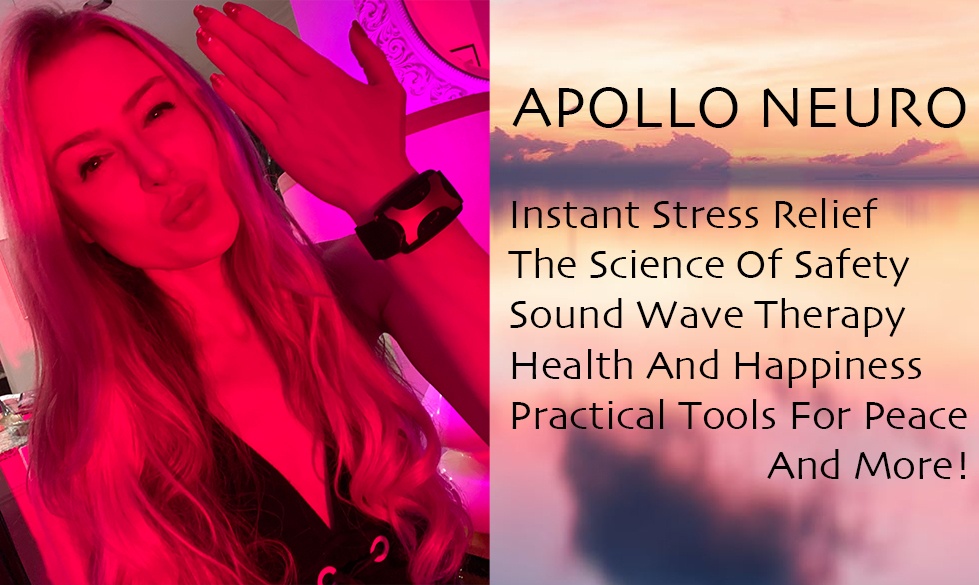The Role Of Stress In Health And Happiness
We all encounter stress. Stress itself isn’t an inherently “bad” thing: it is simply a challenge to our system. Hormetic stress, for example, is an acute type of stress (like fasting or exercise) which ultimately encourages our bodies to grow stronger. But when otherwise temporary stressors become chronic, or build up to exceed our personal stress bucket, the totality of our stress known as our “allostatic load” can become a problem for health and happiness. From issues at home, to frustrations at work, to the macro issues at a global scale, we all cope with stress differently. And while we often can’t control the stressors at hand, we can control how we react to stress.
There are efficient, practical ways to cope with stress, such as exercise, meditation, or deep breathing. So why do these solutions often feel so impossible, when we may know they’re proven to help?
When we find ourselves already stressed-out, tapping into breathwork, yoga, and exercise - despite cognitively knowing they will help - can seem insurmountable, as they often require effort and/or a change of routine. When we’re already overwhelmed and exhausted, our brain opposes change, which it registers as new, different, and unverified. Thinking about changing our old, less healthy routines, or putting effort into breaking habits of any kind, is legitimately hard on the neural level. Our bodies cling to habit and routine, especially when we’re stressed.
What if there was a way to tackle stress, with the touch of a button?
Enter Apollo Neuro. Apollo is a stress relief wearable that uses gentle vibrations to help your body recover from stress. The wrist device helps clear your head, improve your energy, encourage socialization, enhance focus, achieve deeper meditative states, relax and unwind, and even fall sleep. Apollo pairs with a mobile app with different modes that let you choose how you’d like to feel. Used over time, Apollo helps your body naturally improve its resilience to stress and bounce back more quickly when you’re triggered.
Friends, I try a lot of “biohacking” devices, as well as stress mitigation techniques, and this device has truly blown me away. (Check my interview I did with the founder, Dr. David Rabin, on The Melanie Avalon Biohacking Podcast.)
The Story Behind Apollo: The Power Of Touch
Apollo Neuroscience was co-founded by Kathryn Fantauzzi and Dr. David Rabin, MD, PhD. Dr. Rabin is a board-certified psychiatrist and neuroscientist who specializes in treating chronic stress. Kathryn, Apollo’s CEO, specializes in bringing discoveries out of the lab and into the real world.
Dr. Rabin began his research on what would ultimately become Apollo in 2014 at the University of Pittsburgh. He noticed a common theme in his clinical work: all of his patients’ symptoms became worse when they were experiencing stress.
This comes as no surprise, since stress sends a signal to our bodies that we’re under threat. It initiates our fight-or-flight response, making it difficult for us to focus, relax, and maintain the sleep we need to recharge and recover.
Through extensive research, Dr. Rabin noticed that touch was often overlooked in stress management, despite its incredible ability to signal safety to the body and reduce stress.
Dr. Rabin discovered that certain vibration waves which mimic the signals of human touch, could rapidly restore balance to our bodies and minds, while actively improving heart rate variability, a critical measure of the effects of mental and physical stress on the body.
Trials in both the lab and in the real world repeatedly demonstrated that Apollo measurably reduced stress, improved focus, and helped people sleep. With this validation, Dr. Rabin and Kathryn joined forces to bring Apollo out of the lab and into the lives of anyone looking for a non-habit forming, safe way to take control of their health.
None of this science is new. As Dr. Rabin puts it, “Apollo is based on the sense of touch - how touch makes us feel safe, and how touch has always been the single most important signal for us to convey to each other that we are safe.”
The Science Of Safety
Feeling physically or mentally tired or stressed out, diminishes activity in the parasympathetic (rest-and-digest) branch of our nervous system, and activates the sympathetic (fight-or-flight) branch of our nervous system. That stress response leaves us feeling distracted and overwhelmed, making it difficult to sleep. Apollo helps us take control of our mood and energy levels by delivering gentle vibrations to the skin which our emotional brains detect as soothing safety signals. These are the same nerve pathways that are activated when someone we like hugs us on a bad day, when we hold a pet, or when we take a deep breath. This effectively helps us to restore homeostasis, by balancing our autonomic nervous system, and improving our resilience to stress.
Unlike “top-down” methods of controlling stress - such as cognitive behavioral therapy or mediation - sound wave therapy is “bottom-up” learning: in which the body changes the brain. Just like breathing, Apollo’s vibrations or a loved one’s touch almost instantaneously remind the fear center of our brains of one precise understanding: if we have the time to pay attention to this feeling right now, we can’t possibly be facing a true threat to our survival. We are safe.
The positive signals these activities send to our brain remind us that we’re safe enough to allow ourselves to fall asleep, to focus, to relax, and to be present in the moment. It enables us to take control of our single most valuable commodity - our attention - which starts with making decisions from the standpoint of safety and strength, rather than fear and insecurity.
Apollo is a profound tool in our toolbox, alongside soothing touch, music, deep breathing, yoga, meditation, and plant medicine. The more we use these tools alone and in combination, the more in control and in balance we feel. The effects are cumulative, can be tracked over time, with biomarkers like heart rate variability and resting heart rate (I love my oura ring for tracking this!)
Apollo Neuro Technology
Apollo improves our resilience to stress through haptic technology (also known as kinaesthetic communication or 3D touch) by Lofelt. This novel touch therapy delivers smooth and gentle vibrations, and syncs via bluetooth to an interactive mobile app. Importantly to me, you can put the device into airplane mode after selecting your program.
Most users choose to wear their Apollo on their ankle or wrist. (I use my wrist!) You then select your goal-based program in the app, such as Clear and Focused, or Sleep and Renew, and Apollo will deliver gentle vibrations that - as discussed - activate our parasympathetic nervous response and restore balance to the nervous system by signaling safety to the brain.
These goal-based programs can improve energy and focus, heighten clarity and awareness, and promote relaxation and sleep. You can choose how long the program lasts on the mobile app, and can begin a personalized program of vibration patterns designed to restore the body’s natural equilibrium.
Want your own Apollo Neuro device?? Shop at apolloneuro.com/melanieavalon for an EXCLUSIVE 15% off discount!!
How To Use Apollo
1. Put the Apollo device on your wrist or ankle.
2. Select your mode on the app and customize your duration and intensity.
3. Feel it working, as gentle vibrations balance your mind and body.
Learn more about how you can get the most out of your Apollo.
Who benefits from Apollo? Apollo is for:
- Stressed out professionals
- Parents
- Kids
- Athletes
- Biohackers and health optimizers
- Healthcare professionals
- Mental health patients
My Experience With Apollo
Friends, I practice a lot of stress mitigation techniques, and try a lot biohacking devices. When I say Apollo Neuro is a game changer - I mean Apollo Neuro is a game changer.
As I learned in my interview with Dr. Dave Rabin, Apollo Neuro doesn’t just “calm you down,” but rather it can improve all aspects of energy in your life, by bringing your autonomic nervous system back into balance. That’s why it has modes, for example, which can wake you up and keep you alert, as well as modes to help you wind down at night. It basically can meet you where you’re at, to help train your body to instill a sense of peace.
Apollo neuro can help with anyone perceiving unnecessary stress in their lives, and even people with extreme stress states such as PTSD, may rapidly respond to Apollo. You also may find that - as Apollo Neuro helps rewire your nervous system - that you may not need it as much. (When I first got my Apollo, I was basically using it 24/7. Now, I just put it on when recording podcast interviews, and when winding down at night.) To me, my Apollo feels like a gentle cat purring, and after a few minutes, I don’t even realize I’m wearing it, while it works its magic.
In fact, I’m so in love with my Apollo, that I got my mom one for Christmas. My mom experiences a lot of chronic pain and stress, and I was hopeful it would help her. Now she is obsessed! She basically texts me pictures of her Apollo once a week, proclaiming how much it is helping her. The response has been the same in my FB community, IF Biohackers. I am truly thrilled that this device is changing the lives of so many people, and am forever grateful to Dr. Dave Rabin, for creating such an accessible avenue to peace, in the gentle touch of a button.
EXCLUSIVE APOLLO DISCOUNT
Want your own Apollo Neuro device?? Shop at apolloneuro.com/melanieavalon for an EXCLUSIVE 15% off discount!!
REFERENCES
Apollo Neuroscience studies: the research behind our results
Heart rate variability biofeedback: how and why does it work?
Clinical study validates that Apollo improves cognitive performance and heart rate variability (HRV)
Vagal Activity, Early Growth and Emotional Development
Heart rate variability biofeedback: how and why does it work?


